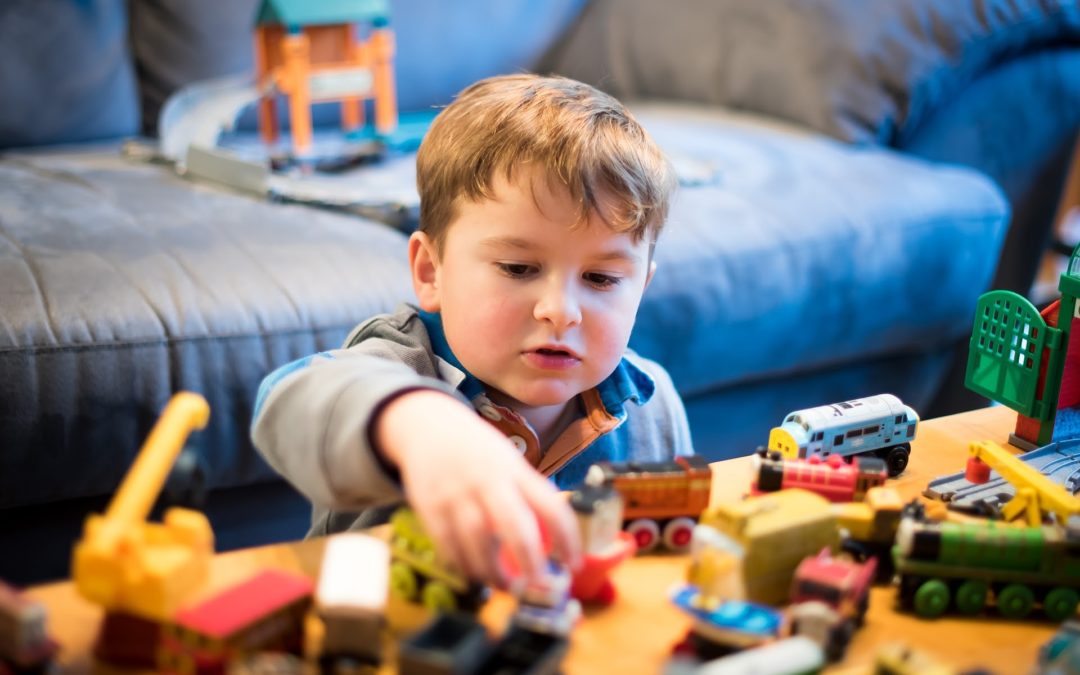
Does My Child Have Autism?
Do you sometimes wonder if your child falls on the autism spectrum? Is your child developing at a different rate than his peers or does he have unusual ways of keeping himself occupied?
There are a number of indicators that a child may be on the autism spectrum, otherwise known as ASD (Autism Spectrum Disorder). Remember that each child is unique and develops at his own pace. It is normal for each child to have his own quirks and behaviors. However, if you can identify with a number of the symptoms below, you may want to seek a professional opinion and an evaluation. Although it may be hard to face a diagnosis, the sooner a child with ASD starts getting intervention, the better his outcome can be.
Communication
Does your child have a hard time communicating at an appropriate age level? A younger child with ASD may have a hard time indicating or requesting his needs, while an older child may point or make gestures instead of using language to communicate. Does he have a hard time describing things, getting stuck on unimportant details instead of focusing on the bigger picture? Does he have a hard time making eye contact or engaging in a back and forth conversation? Do you notice that he often gives answers that have little to do with the question being asked? Language deficits, such as non-verbal communication, failure to make back and forth conversation, and not making eye contact can be associated with ASD.
Social Behavior
Does your child choose to play on his own instead of joining the group activity, whether in class or with a group of friends or siblings? Does he have a hard time engaging in appropriate turn taking during play? Can he play out a pretend story like driving a car to his grandma’s house, getting to grandma’s house and giving her a kiss or does he get stuck in the car driving? Does he have the same way of playing with toys each time he uses them, like lining them up or watching the car wheels spin?
Transitions and Rigidity
Does your child have a hard time with transitions, going from one activity to the next, like stopping to play and getting ready to go to school? Does he have a hard time when there is a change in schedule or plans? Does he get fixated on certain topics that are of interest to him, but not necessarily to anyone else around him? Does he engage in repetitive motor movements or constantly repeat certain phrases? Children with ASD often engage in repetitive stereotypical behavior, inflexible with routines, rigid thinking, and hyper focused on specific topics.
Sensory Processing
Does your child have extreme reactions to noises or textures that others don’t even notice? Does he react adversely to loud noises or regular background noise? Do you find that he is very picky about what he will wear or what texture foods he will eat? Does he seek constant touch or activity? Does he shrink from the touch of others? Perhaps he doesn’t seem to hear or feel what everyone around him is aware of. It is common for children with ASD to have unusual reactions, either overreacting or under-reacting, to noise, textures, lights, smells and tastes.
What Do I Do Next?
If you do think your child fits into a number of the above criteria, discuss your concerns with your child’s doctor. Ask for a referral to a specialist who can give your child a full evaluation If your child does have a diagnosis of ASD, remember that there is help! Behavioral therapy, otherwise known as ABA therapy, can help your child by addressing the negative behaviors he may engage in and developing the skills he needs to function and become the best he can be.
For more information or to discuss how Attentive Behavior Care can help your child, contact us today.
